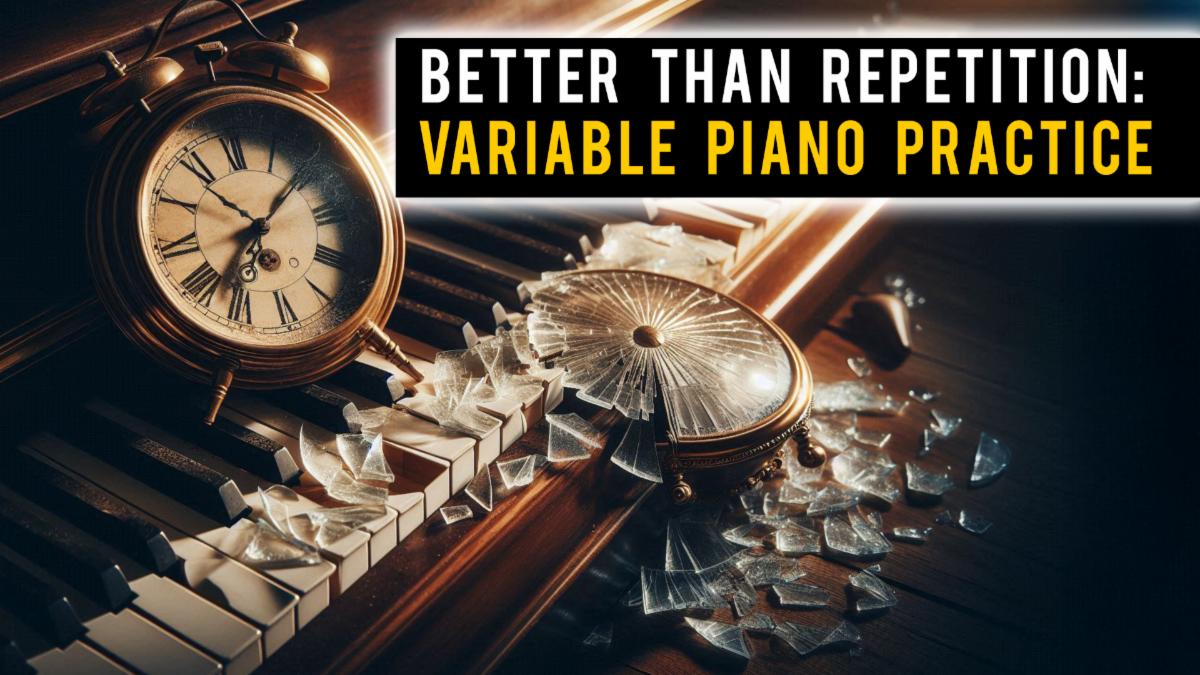I’m Robert Estrin. Welcome to LivingPianos.com. Legato octaves can be one of the most beautiful expressive tools in piano playing—if you know how to approach them correctly. Today, I want to share a technique that can be a breakthrough for you. I was working with a student on the middle section of Chopin’s Nocturne in B-flat minor. This tip transformed his playing, and I think it could help many of you, too!
The Usual Approach to Legato Octaves
If you’ve worked on legato octaves before, you probably know the general technique: using the fourth and fifth fingers on the top notes, and for those with larger hands, even the third finger at times to maintain legato on the top notes of the right hand (or the bottom notes of the left hand). That’s solid advice—and I’ve covered it in earlier videos. But today, I want to go a step further and share something counterintuitive, yet incredibly effective.
The Real Secret: Abandon Your Thumb!
Don’t try to connect the thumb. In fact, you should purposely disconnect the thumb. Why? Because when you try to connect the thumb from one octave to the next, something strange happens: you end up connecting nothing at all. The thumb is simply not capable of connecting from note to note in this context. It’s physically impossible. Instead, focus entirely on the top note of the octave. That’s where the melody lives. Use your fourth finger on black keys, to get the smooth connection you’re after.
Disconnecting the Thumb Creates Better Sound
There’s another benefit to this approach: it actually sounds better. When you stop trying to connect the thumb, you can shift your weight into your pinky and fourth fingers. That gives the top note of the octave more presence and warmth.
Here’s the comparison:
• With equal weight on both thumb and pinky, the sound tends to flatten out—especially in softer passages.
• With more weight in the pinky and the thumb playing detached, the sound becomes more lyrical and fluid.
Practice Tip: Exaggerate at First
The best way to learn this technique is to practice without the pedal and deliberately detach the thumb. That may feel extreme at first, but it ensures you’re not unintentionally trying to connect the thumb and compromising the top line.
Try this:
Play just the right hand (or whichever hand the octaves are in).
Play the thumb with a gentle staccato.
Focus all your attention on putting weight into your fourth and fifth fingers, particularly in softer passages.
Once that feels natural, you can ease up on how short the thumb plays, but that initial practice will build the foundation.
Isolating the Right Hand
To clarify further, I recommend playing just the right hand (or whichever hand has octaves). You’ll notice how lifting the thumb slightly earlier makes all the difference. It allows you to play beautifully connected top lines in your octaves and avoid tension.
Adding the Pedal Back In
Now that your hand is doing what it should, you can add the pedal. And voilà—you’ll hear a clear, connected top line floating beautifully over the harmony. That’s the power of not trying to do the impossible – not trying to connect the thumb since it is playing all the notes and can’t possibly connect.
So remember:
• Don’t try to connect the thumb in legato octaves—it can’t be done.
• Focus entirely on the top notes, using fourth and possibly third finger where possible.
• Put more weight into the pinky, and back off the thumb, particularly in quiet playing.
• Practice first without the pedal to really hear what’s going on.
• You’ll be amazed at how much smoother and more expressive your octaves become. Try this technique with Chopin’s B-flat minor Nocturne or any piece that calls for legato octaves—and let me know how it goes!
I’m Robert Estrin. This is LivingPianos.com, your online piano resource. If you’re interested in a free personal consultation with me, click here!



